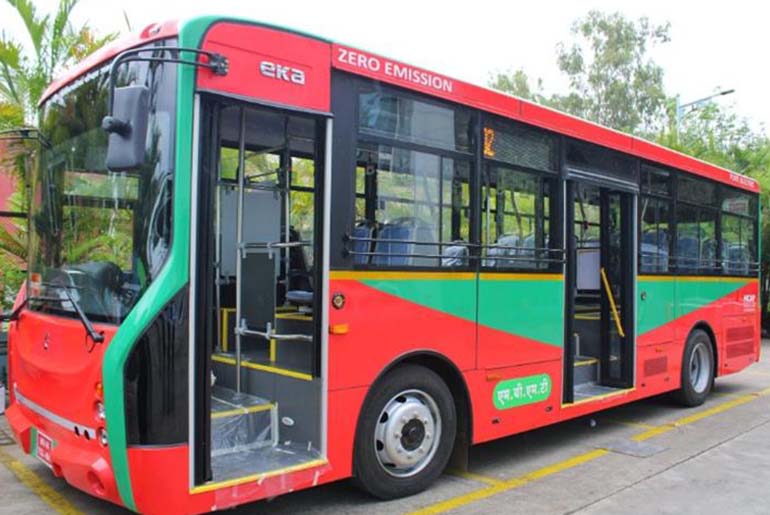Pinnacle Industries has been planning to set up a new e-bus manufacturing plant in Chakan, Maharashtra for its EV business vertical, Eka Mobility.
The company is setting up the 5,000-unit annual capacity plant for its EV subsidiary, Eka Mobility – which manufactures electric buses in the 9- and 12-metre-long categories.
The new plant will be commissioned in September 2024, revealed Sudhir Mehta, Chairman, Pinnacle Industries, and founder and chairman, Eka Mobility.
Mehta spoke on the sidelines of Eka Mobility’s launch of its new range products in the e-LCV segment, at the Bharat Mobility Show, in New Delhi.
The company introduced the Eka K1.5 – its range of 1.5-tonne LCVs—at a starting price of Rs 13.90 lakh, ex-showroom. Eka Mobility claims that the K1.5 electric three-wheelers offer the highest payload capacity, and minimal TCO in their category. With multiple variants, the K1.5 can be customized for eight different applications. The e-three-wheeler is built on a 300V EV architecture, and offers fast charging capabilities as well.
Given the demand coming its way and to ensure future capacity readiness, the company plans to ramp up e-bus capacity at Chakan, and is also setting up of a second plant in Pithampur, near Indore, sometime in CY2025. “We plan to expand capacities to 10,000 units in the second phase, across the two facilities,” added Mehta.
In terms of LCVs, the company is installing a manufacturing capacity of around 6,000 units and will expand to 12,000 units across the two plants.
Pinnacle Industries has earmarked an investment of Rs 2,000 crore over the next five years into its EV venture, including its commitment under the government’s Auto PLI scheme to locally manufacture EV components. While it has so far invested nearly Rs 500 crore into Eka Mobility, Japan’s Mitsui and Netherlands-based VDL, have collectively invested US$ 100 million into Eka Mobility.
The company is indigenously developing its products at its 250-member strong R&D centre in Pune, which is doing ground-up EV development work. Eka Mobility developed its first e-bus in a span of three years, and aspires to take its products to overseas markets as well.
According to Mehta, “We want the business to be sustainable and profitable as well. While we are not taking a slash-and-burn approach, we want to be profitable soon. The EV space is quite dynamic and we are very new entrants into the game. There are several big players that are quite entrenched, so we’ll take it step by step.”
“Having said that, the challenge for us right now is not competition, but to get the EV buses going. The unit economics now work very well for EVs, and therefore, if we get the support infrastructure to grow, this segment would certainly flourish,” he said.
The company expects strong growth in the electric bus segment in the coming years, owing to the government push for cleaner transportation. “The government is pushing e-buses and several tenders are floating. Hopefully, we will have our fair share of numbers there,” Dr Mehta pointed out.
At present, Eka Mobility has orders in hand for about 700 e-buses, of which the first lot comprising 60 e-buses will start plying in Mira Bhayandar and Ulhasnagar in Maharashtra by end-March 2024. “Since e-bus orders are more GCC- (gross cost contract) driven, at the moment, we will first focus on Mumbai and then start with other deployments, including those in the private sector,” Dr Mehta said.
The company has effected an exclusive tie-up with automotive dealership PPS Motors, which will set up the service establishments for Eka Mobility in key cities across the country. It says the LCV category, on the other hand, mostly thrives on B2B sales, and it expects a strong pull in that area as well. “There are several e-commerce logistics players, and our target is to first establish the use cases, and then ramp up the numbers. While we are already in Pune, we will venture into Delhi-NCR soon. We will focus on 6-8 markets to start with and gradually venture into other cities,” Mehta said.

